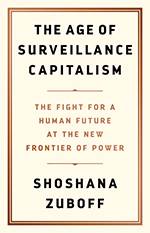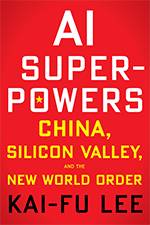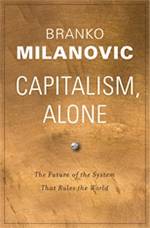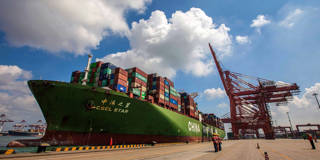Stephen S. Roach
Says More…
This week, Project Syndicate catches up with Stephen Roach, a faculty member at Yale University and former Chairman of Morgan Stanley Asia.
Project Syndicate: Much has been written about how emerging economies can protect themselves from risks generated by the advanced economies, and how the world can protect itself from the risks of a Chinese growth slowdown or debt crisis. But the new coronavirus, COVID-19, represents yet another economic risk, owing to the disruption of global value chains. Does this affect your prediction that even a protracted US-China rupture would not split the global economy? Are there steps the rest of the world can take to minimize the economic risks arising from COVID-19?
Stephen Roach: Economists (including me) have an unfortunate knack for compartmentalizing. We treat non-economic developments like COVID-19 as so-called exogenous shocks, rather than build them into our forecasting models as endogenous features.
In my work on China, I have long stressed the deficiencies of its social safety net – not just pensions, but also health care – as a key reason why families save so much: they are motivated more by fear of an uncertain future than by purely economically-driven life-cycle considerations. While I have argued that Chinese households’ precautionary saving remains a key impediment to more robust consumption growth, I am guilty of not anticipating how an underfunded public-health system left China highly vulnerable to the outbreak of another devastating virus, only 17 years after it was hit by severe acute respiratory syndrome (SARS).
Roach recommends
We ask all our Say More contributors to tell our readers about a few books that have impressed them recently. Here are Roach's picks:
-

The Age of Surveillance Capitalism
by Shoshana Zuboff
We tend to think of surveillance in terms of cameras, images, and facial recognition. Zuboff forces us to expand the concept to large-scale data capture by the likes of Google, Facebook, and Amazon. She compellingly describes how such data are bought and sold, and ultimately exploited for behavioral modification. (And this is to say nothing of the intense debate over privacy.) Surveillance comes in many different forms, and it behooves us to ponder the implications of how it is done in the US, as well as in other countries, such as China. -

AI Superpowers: China, Silicon Valley, and the New World Order
by Kai-Fu Lee
At a time when China is being vilified in the West for cutting corners on technology, Lee takes us under the hood of the new wave of Chinese innovation and competition. He paints a provocative picture of a concerted effort and breakthroughs in artificial intelligence that favor China, with its comparative advantage in big data and frontier applications, such as fintech, life sciences, and e-commerce. He also raises profound questions about what is likely to be a lasting US-China tech conflict.
-

Capitalism Alone: The Future of the System That Rules the World
by Branko Milanović
We tend to think about inequality as a country-specific problem. But Milanovic looks at it as a global issue. Back in 2012, he presented his now-famous “elephant curve,” which captures the twin pressures that the new middle class of the developing world (specifically, China) and the elites of the developed world (specifically, America’s 1%) place on the rest. His latest effort forces us to look at capitalism through a very critical lens: Is it truly the best system to address such profound global inequalities?
From the PS Archive
From 2018
Roach spells out five lessons from a decade of quantitative easing by central banks. Read more.
From 2017
Roach explains why forecasters continue to predict the worst of China’s economy, only to be proven wrong time and again. Read more.
Around the web
In an interview on CNBC, Roach considers just how disruptive COVID-19 could be to China and the global economy. Watch the video.
In an earlier CNBC appearance, Roach casts doubt on the Trump administration’s allegations that Huawei poses a security threat. Watch the video.
